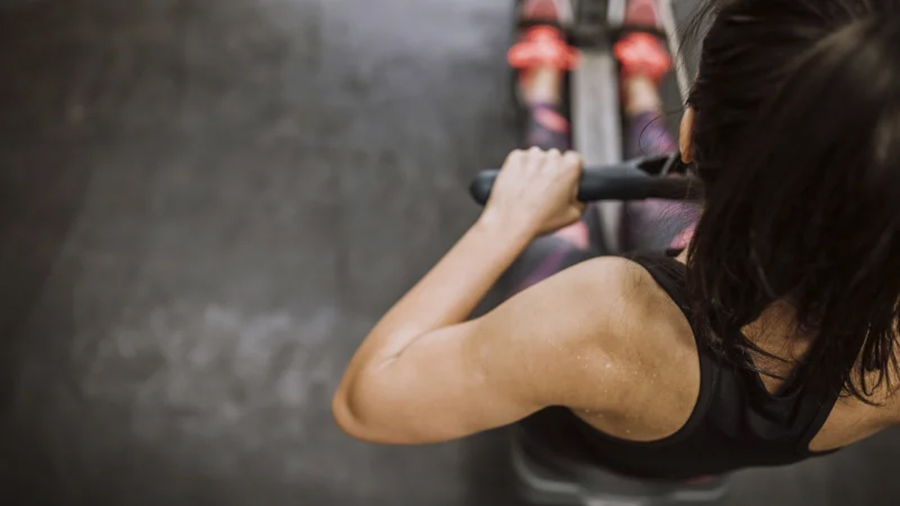Asics Releases Findings from Gender Exercise Gap Study
Source:CHINA SPORTING GOODS FEDERATIONRelease time:2024-03-09Clicks:
Article From:sgbonline

Asics Corp. released the results from its global study on the gender exercise gap, reaffirming a positive correlation between women’s exercise levels and their mental well-being, with women reporting they are 52 percent happier, 50 percent more energized, 48 percent more confident, 67 percent less stressed, and 80 percent less frustrated when they participate in a regular exercise routine.
The study was conducted with 24,959 participants, commissioned by Asics, and independently led by academics Dr. Dee Dlugonski and Professor Brendon Stubbs, who found that over half of women globally are dropping out or stopping exercise completely, which could negatively impact their state of mind. In response, Asics said it is recognizing and amplifying the positive impact of individuals and grassroots organizations breaking barriers for women in sport, supporting, empowering and inspiring more women to move.
The global study found that over one-half of women are unhappy with their exercise levels. The study also found that women experience barriers to exercise throughout their lifetime due to time pressures (74 percent), low self-confidence (35 percent), intimidating environments (44 percent), or not feeling sporty enough (42 percent).
The study also found that almost two-thirds (61 percent) of women cited motherhood as the primary reason they dropped out of regular exercise or sports, showing the impact of caregiving responsibilities on women’s activity levels.
Focus group participants frequently described how societal expectations about gender roles, including that women should bear the majority of family caregiving and household responsibilities, played a significant role in their stopping exercise.
Not surprisingly, men’s perceptions of the challenges women face differed from the reality women experienced.
“Only 34 percent of men recognized lack of time as a barrier to exercise for women, despite three-quarters (74 percent) of women citing the issue,” the researchers wrote in the report. “Instead, men thought body insecurities were the leading problem, with 58 percent of men reporting this as the main barrier, compared to 36 percent of women.”
Of the top five barriers to exercise perceived by men, only one (cost) featured in the list of most common obstacles reported by women, highlighting a disparity between men’s perceptions and the reality women feel worldwide.
The study found that over one-third of women surveyed said their friends are their most important exercise influencers, noting that they’re more motivated to exercise by women like themselves, rather than celebrities. Parents and romantic partners were also influential, showing that both genders can impact women’s participation in sports.
When asked why they would exercise, women universally said for their mental (92 percent) and physical (96 percent) well-being rather than aesthetics.
The study lead, Dr. Dlugonski, assistant professor at Sports Medicine Research Institute, University of Kentucky, said, “Our study showed that the gender exercise gap is a complex challenge that did not develop overnight. Given that it has no sole cause, it will not be solved with one single solution, but when asked what could help, women noted that making movement more accessible, inclusive and recognized in all forms while challenging society’s gendered expectations would support them in moving more. This includes making exercise centered around women and their needs,” continued Dlugonski.
“From providing childcare and catering for all activity levels to fitting around work, being fun, affordable, safe, welcoming and judgment-free. All these solutions, while small, can have a significant impact, and through this study, we identified thousands of individuals and organizations around the world who are already driving change,” Dlugonski said.
Tomoko Koda, managing executive officer at Asics commented, “Asics was founded on the belief that sport and exercise benefit the body and the mind. It’s why we’re called Asics: ‘Anima Sana in Corpore Sano’ or ‘Sound Mind in a Sound Body’. While our study found that many women are not happy with their exercise levels, it also uncovered the tremendous impact that individuals and grassroots organizations are having in helping women move.
“By launching Move Her Mind, we hope to give these remarkable people a platform to connect and inspire others so everyone can achieve a sound mind in a sound body. It’s time more women and girls experience the positive physical and mental benefits of exercise. It’s time for change. It’s time to Move Her Mind.”
The study was commissioned by Asics and independently led by Dr Dee Dlugonski, assistant professor, Sports Medicine Research Institute, University of Kentucky, and Associate Professor Brendon Stubbs of King’s College London. Both are researchers in movement and mental well-being. The study ran from June through September 2023. In total, 26 focus groups were conducted worldwide with 187 participants, and 24,772 people completed an online survey across more than 40 countries. Leading academics and industry experts facilitated all focus groups.
Copyright ©2013-2024 CHINA SPORTING GOODS FEDERATION, All Rights Reserved ( 京ICP备05083596号-1 )




